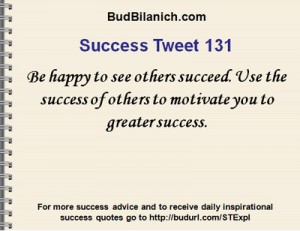 A while back in a post I did on optimism and self-confidence, I mentioned a quote in which a guy by the name of Ambrose Bierce bashed optimism – and I am an incurable optimist. I advocate optimism as a way to create self-confidence and career success.
A while back in a post I did on optimism and self-confidence, I mentioned a quote in which a guy by the name of Ambrose Bierce bashed optimism – and I am an incurable optimist. I advocate optimism as a way to create self-confidence and career success.
Anyway, Ambrose defined optimism as, “The doctrine that everything is beautiful, including what is ugly, everything good, especially the bad, and everything right that is wrong… It is hereditary, but fortunately not contagious.”
I come across quotes from Mr. Bierce frequently. Check out this one: “Calamities are of two kinds: misfortunes to ourselves, and good fortune to others.” Both of these quotes are really cynical. I wondered what kind of guy would produce them.
So I decided to learn something about Ambrose Bierce. As it turns out, he was called “Bitter Bierce” by his contemporaries. And I can see why. First he bashes optimism, then he suggests that human beings see the good fortune of others as a personal calamity.
Ambrose Bierce is an interesting character. He was born in 1842, and served in the Union Army during the Civil War. No one knows for sure, but it is thought that he died in 1914. In 1913, he traveled to Mexico to get involved with the revolution going on there.
He joined Pancho Villa’s army in Juarez. On December 26 1913, he posted a letter to a friend from Chihuahua. That was his last correspondence. Wikipedia says, “Several writers have speculated that he headed north to the Grand Canyon, found a remote spot there and shot himself, though no evidence exists to support this view. All investigations into his fate have proved fruitless, and despite an abundance of theories his end remains shrouded in mystery. The date of his death is generally cited as ‘1914?’”. His disappearance is one of the most famous in American literary history.”
In 1906, Ambrose Bierce published “The Cynic’s Word Book.” The title was changed to “The Devil’s Dictionary”. It is a book of satirical definitions of English words. Ambrose was clever, I’ll give him that. I often see quotes from this book online, including the one that inspired today’s post: “Calamities are of two kinds: misfortunes to ourselves, and good fortune to others.”
But I digress. I wish he were around today, because I would like to ask him where he got his bleak view of human nature. He defines politeness as, “The most acceptable hypocrisy.” In another quote, he defines perseverance as, “A lowly virtue whereby mediocrity achieves an inglorious success.”
Do you know any people like Ambrose Bierce? If you do, hold them at arm’s length. While you may find them to be witty and entertaining at first, they will drag you down in the long run.
People like Ambrose Bierce may be clever, but their views are incompatible with becoming self-confident, creating positive personal impact, building strong relationships and becoming a life and career success. Successful people look for, and usually find, the best in others. They are polite because it is the best way to build strong relationships. They are willing to extend themselves to help others, even when they can see no immediate return to them for so doing.
If you read this blog regularly, you know I am a big fan of The Optimist Creed. Point 6 says,
“Promise yourself to be just as enthusiastic about the success of others as you are of your own.”
This is 180 degrees from the Ambrose Bierce quote that I cited at the beginning of this post and from his life view in general. Successful, self-confident, optimistic people aren’t jealous or upset by the success of others. They are genuinely pleased when they see others succeed. They use others’ success as an inspiration. They use it to motivate themselves to achieve their own life and career success.
The common sense career success coach point here is clear. Successful people are self-confident, create positive personal impact, interpersonally competent and adept at building strong relationships with the people around them. In part, they build these relationships by being genuinely pleased about the success of others. They are neither jealous, nor petty. They are happy to see others succeed. They follow the career advice in Tweet 131 in Success Tweets. “Be happy to see others succeed. Use the success of others to motivate you to greater success.” Successful, self-confident people use the success of others to motivate themselves to greater success. They aren’t jealous. They are happy to see others succeed, if for no other reason than others’ career success can be a springboard for their own life and career success.

Speak Your Mind